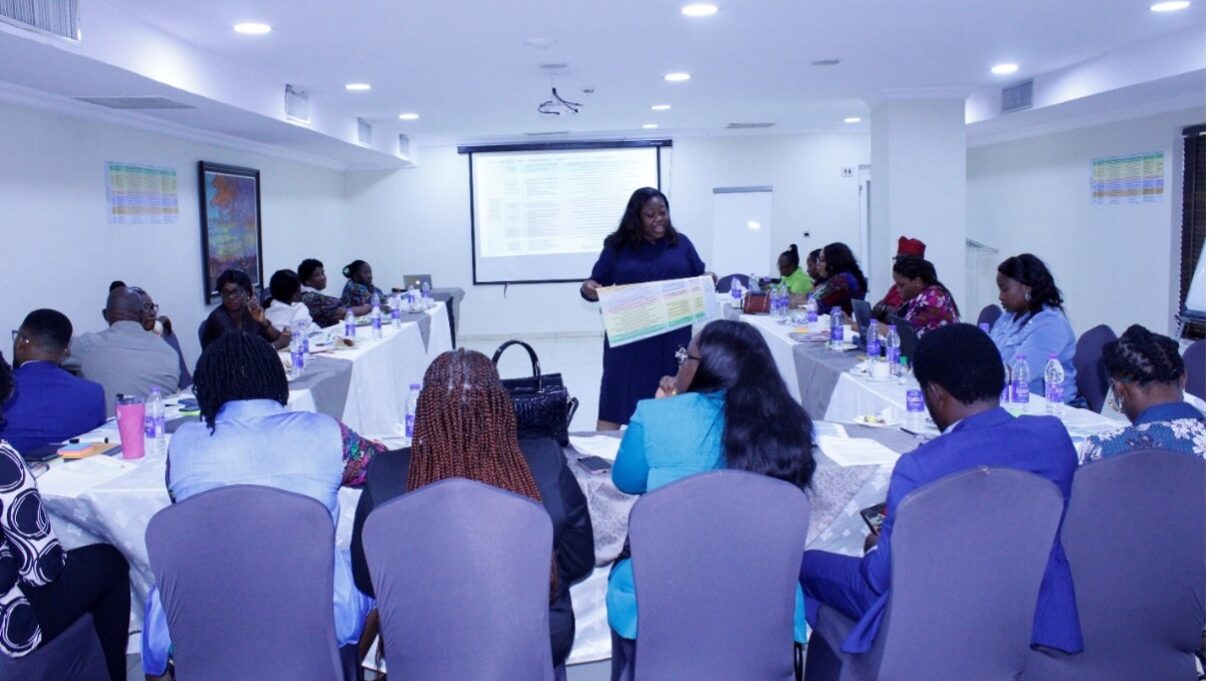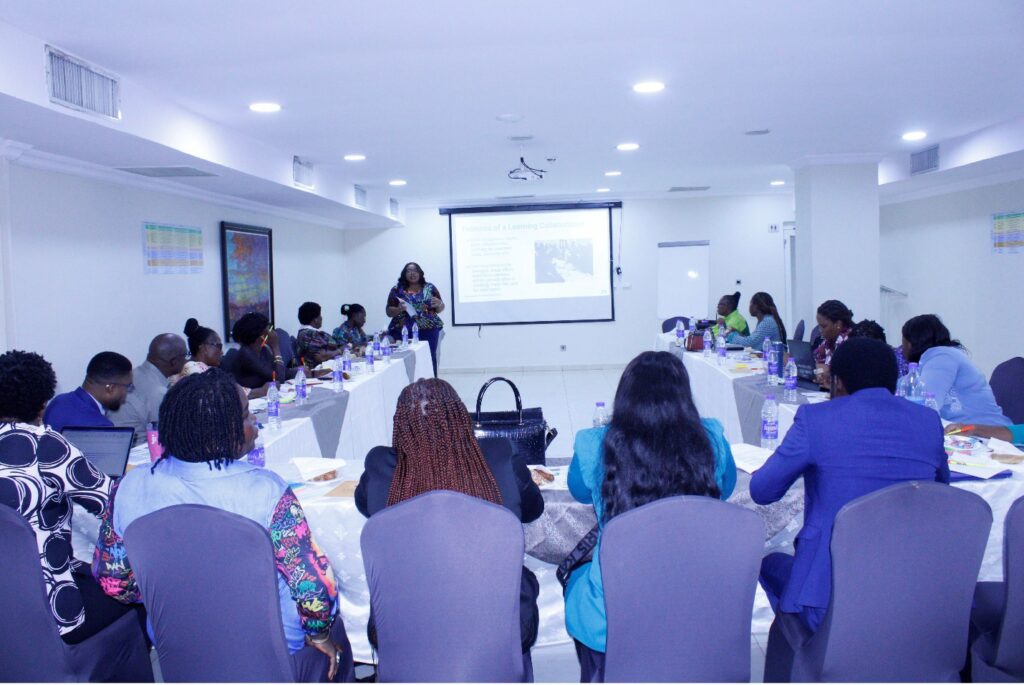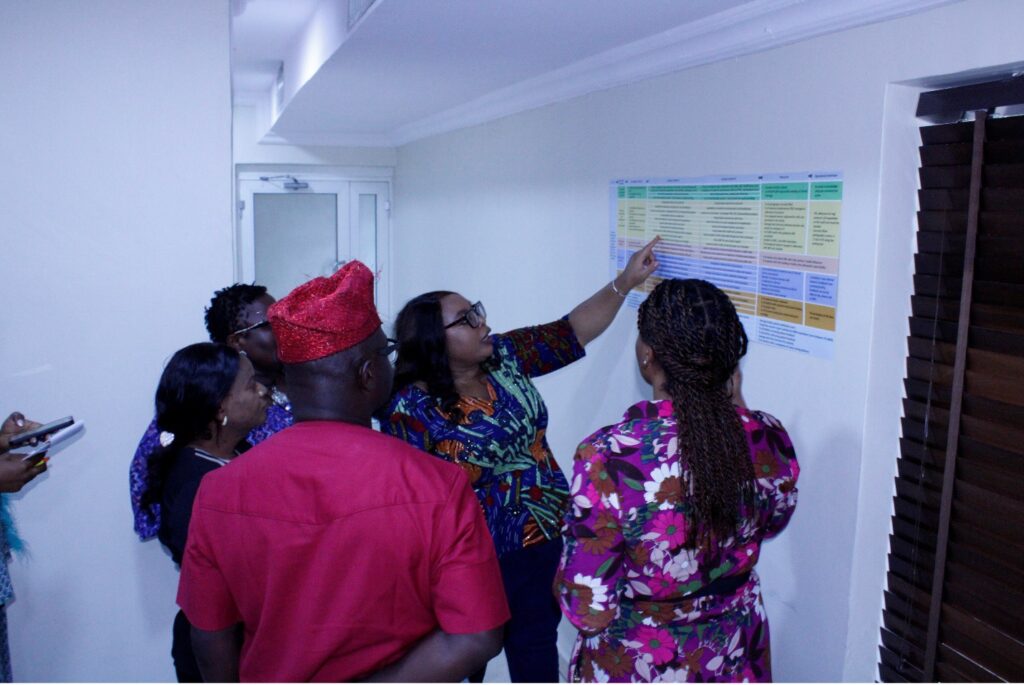HSDF and IHI Co-facilitates Clinical Expert Workshop for Implementing Maternal Health Quality Improvement Learning Collaboratives under the MSD-for-Mothers-funded Project Aisha in Lagos State

Last week, HSDF co-facilitated a workshop designed to review facility-based drivers of poor maternal outcome and the development of a quality improvement (QI) change package to be implemented in project health facilities towards combating gaps in maternal healthcare delivery. The one-day workshop, which was held at the Amber Residence in GRA Ikeja, brought together over 25 maternal health professionals from the Society of Gynaecology and Obstetrics of Nigeria (SOGON), the Lagos State Ministry of Health (LSMOH), Lagos State Health Service Commission (LSHSC), and Lagos State Primary Health Care Board (LSPHCB).
The event featured open discussions, during which participants identified the main causes of maternal mortality as well as associated factors that contributes to these main causes and gaps in services provision using driver diagrams. Leveraging the knowledge and years of experience of the experts, global best practices and lesson learnt from similar project in Nigeria and Africa, a quality maternal care change package was developed. The developed change package details quality improvement activities, measuring matrix and work tools to be adopted by the maternal QI learning collaboratives. The learning collaboratives is made up of private and public health facilities providing primary and secondary level of maternal care.
Commenting on the success of the event, the HSDF Project Lead said, “We are thrilled with the level of engagement and interactions at this workshop. The insights shared by participants during the discussions were incredibly valuable, and we believe that the ideas generated here will have a significant impact on improving maternal health outcomes in Lagos State”.
This workshop is part of a larger effort by the MSD-for-mothers-funded Project Aisha to reduce maternal mortality and morbidity rates in Nigeria. As an implementer partner, HSDF is committed to working with healthcare providers, policymakers, and other project stakeholders to address the systemic issues that contribute to poor maternal health outcomes, and to create a healthcare system that prioritizes the health and well-being of all women.
Going forward, HSDF will consolidate and validate ideas generated during the workshop and disseminate the final change package to the QI learning collaboratives at the next learning event in August 2023.
For more information on HSDF and our work in the healthcare ecosystem in Nigeria and across Africa, please visit www.hsdf.org.ng




Grants and Business Development Specialist
We are seeking a highly motivated and experienced Grants and Business Development Specialist to join our organization. The successful candidate will be responsible for identifying funding opportunities, developing grant proposals, and fostering partnerships with potential donors and stakeholders (regional and global). This role plays a vital part in securing funds and resources to support our organization’s mission and projects.
Apply NowPublic Health Consultant, Guinea
The consultant (working with the Accelerator team) will collect results from the tool, organize a meeting with stakeholders to discuss results from the tool, and produce a report on key findings and recommendations from the tool to be shared publicly.
Apply NowPublic Health Associate, Senegal
We are currently in search of an experienced Public Health professional in Senegal to work on the anticipated Nutrition Capacity Development and Financing Platform and provide technical assistance to elevate nutrition financing and strengthen local capacity to support these efforts. The Associate must be bilingual (English and French).
Apply Now